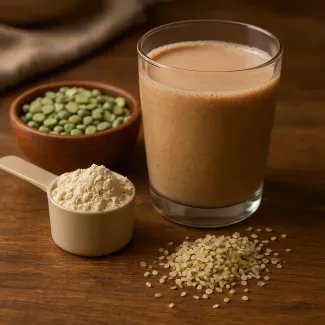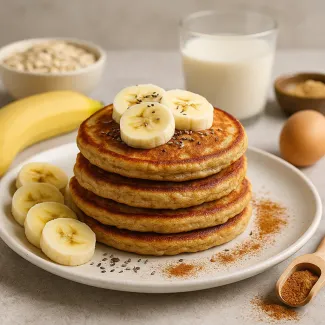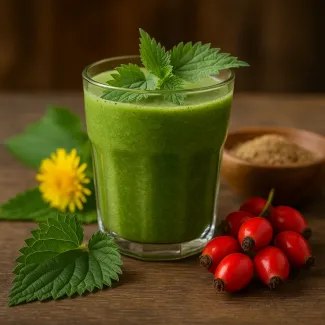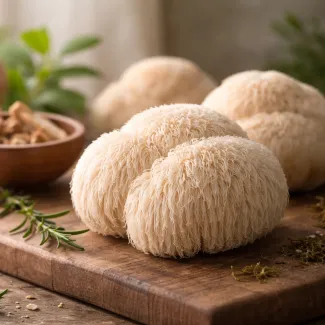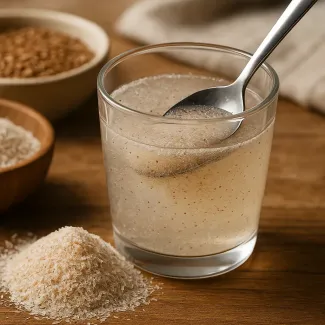
Natural fiber support: gentle relief and digestive balance
Discover how fiber supplements ease constipation and promote long-term gut health
When your digestive system feels sluggish, it often points to a lack of dietary fiber. This imbalance can lead to irregular bowel movements, a sense of heaviness, and even skin issues or fatigue. Adding fiber supplements to your routine can be a simple yet powerful way to bring back rhythm to your digestion and support overall well-being. But not all fibers are the same, and knowing which fiber works best for your body is essential.
Fiber works by increasing the bulk of your stool and improving its consistency, which makes it easier to pass. This process not only relieves occasional constipation, but also helps restore a balanced gut microbiome, which plays a central role in mood, immunity, energy, and skin clarity.
Let’s dive into how different types of fiber supplements work, what to look for, how to use them safely, and how to choose the best formula for your body’s needs.
Understanding constipation and its common causes
Constipation isn't just an inconvenience; it's a sign that your digestive tract isn’t functioning properly. Most people define it as having fewer than three bowel movements per week, but for many, the problem goes beyond frequency. Stools that are hard, dry, and painful to pass can signal a fiber deficiency, dehydration, or sluggish intestinal activity.
Common causes include:
- Low fiber intake, especially from processed or fast foods
- Insufficient hydration, which can dry out the stool
- Lack of movement, such as sitting for long hours
- Stress, which can alter digestion and bowel regularity
- Hormonal changes, particularly during menstruation, pregnancy, or menopause
- Medications, including opioids, antidepressants, and some iron supplements
Addressing these factors is part of a full digestive strategy, but adding fiber supplements is often the most immediate way to stimulate the bowel and reduce discomfort.
Types of fiber: soluble vs. insoluble
There are two main categories of fiber, each playing a unique role in digestion.
Soluble fiber dissolves in water and forms a gel-like substance in the gut. It slows digestion slightly and is excellent for softening stool and feeding beneficial gut bacteria. Sources include:
- Psyllium husk
- Inulin
- Beta-glucan (found in oats and barley)
- Acacia fiber
Insoluble fiber, on the other hand, adds bulk and helps move stool through the digestive tract more quickly. It's especially useful when stools are small, dry, or infrequent. Common forms include:
- Wheat bran
- Cellulose
- Ground flaxseed
Most effective supplements combine both types of fiber for comprehensive gut support.
Benefits of fiber supplements beyond bowel movements
While most people take fiber for relief from constipation, its benefits reach much further. Regular intake of the right fiber supplement can:
- Improve gut microbiota diversity
- Enhance nutrient absorption
- Promote satiety, which helps with weight management
- Support immune function, since much of the immune system is rooted in the gut
- Balance blood sugar levels, especially post-meal
- Lower LDL cholesterol, particularly with psyllium and beta-glucan
- Reduce inflammation, thanks to a healthier gut lining and reduced toxin absorption
These cumulative effects make fiber one of the most underestimated wellness tools.
Choosing the right fiber supplement for your body
Not every fiber supplement is ideal for every person. Your choice should reflect your symptoms, dietary habits, and sensitivity level.
If your main goal is to relieve constipation, opt for:
- Psyllium husk: high in soluble fiber, it helps retain water in the stool
- Methylcellulose: synthetic, non-fermentable fiber ideal for those sensitive to gas
- Ground flaxseed: offers both fiber and omega-3s
For gut microbiome support:
- Inulin or fructooligosaccharides (FOS): prebiotic fibers that nourish healthy bacteria
- Acacia fiber: gentle and well tolerated by most
If you’re prone to bloating or have IBS, start with low-FODMAP options like:
- Partially hydrolyzed guar gum (PHGG)
- Citrus pectin
Always introduce fiber gradually, allowing your digestive system to adjust.
Timing and dosage: when and how much fiber to take
The body responds best when fiber is introduced in small, consistent doses. Taking too much at once can lead to bloating, gas, or cramps—especially if you're not used to a high-fiber diet.
Start with 3 to 5 grams per day, and increase slowly every few days until you reach a total of 25–30 grams per day from diet and supplements combined.
For best results:
- Take fiber with a full glass of water
- Avoid taking fiber with medications (give at least 1–2 hours space)
- Use early in the day to avoid nighttime bloating
- Keep your water intake high throughout the day
Consistency is key. Occasional use won’t provide the same benefits as daily supplementation.
Fiber supplements and hydration: a critical connection
Adding fiber without increasing fluid intake is like trying to inflate a balloon without air. Fiber needs water to do its job—especially soluble forms like psyllium, which swell and gel in the gut.
Without enough water:
- Stool can become harder, not softer
- You may experience bloating or gas
- It may even lead to worsened constipation
Aim to drink at least 1.5 to 2 liters (50–70 oz) of water daily, more if you're active or in hot environments.
Real-world strategies for success with fiber
Adding a scoop of psyllium to your morning smoothie, sprinkling flaxseed on oatmeal, or taking capsules with lunch are all easy ways to integrate fiber.
Create a routine you can follow every day:
- Combine dietary fiber (veggies, legumes, whole grains) with supplements
- Track your symptoms and adjust the type or dosage as needed
- If you're sensitive, rotate different fibers weekly to avoid dependency or microbiome stagnation
The goal isn’t just bowel regularity, but lasting digestive health.
What to expect: results and side effects
Most people see improvements in stool consistency and frequency within a few days to a week. However, your experience may vary depending on:
- Type and dose of fiber
- Your hydration habits
- Gut sensitivity and microbiota state
Mild side effects like increased gas or bloating are common in the first few days, especially with fermentable fibers like inulin. These usually resolve once the gut adjusts.
If symptoms persist, switch to a low-FODMAP fiber or reduce dosage temporarily.
Who should consult a professional before starting fiber supplements
While fiber is safe for most, certain individuals should seek guidance before supplementing:
- Those with chronic gastrointestinal disorders (Crohn’s, ulcerative colitis)
- People with bowel obstructions or history of strictures
- Those on fluid-restricted diets (e.g., kidney disease)
- Anyone experiencing unexplained weight loss or blood in stool
In these cases, fiber can still help—but it must be tailored carefully.
Fiber for specific lifestyles: vegan, keto, busy, or aging
Whether you follow a specific diet or lifestyle, fiber can be adapted to your needs.
For vegans and vegetarians, plant-based diets already provide fiber, but supplementing ensures balance and variety, especially if your gut struggles with legumes or cruciferous vegetables.
On low-carb or keto diets, fiber intake often drops. Look for non-digestible fibers like PHGG or psyllium that won’t affect blood sugar.
If you live a fast-paced lifestyle, fiber capsules or stick packs are easy to carry and use on the go.
As we age, gut motility slows down, and the gut flora diversity decreases. A daily prebiotic fiber can support regularity and immune resilience.
Daily fiber routines for optimal results
Establishing a simple and consistent fiber ritual can improve long-term outcomes:
- Morning: 1 tsp psyllium husk in water or smoothie
- Midday: Capsule or powder of inulin with lunch
- Evening: Flaxseed mixed into yogurt or soup
Always adjust your fiber based on how your gut feels. If you're constipated, choose bulking fibers. If you're bloated, favor soothing or non-fermentable fibers.
The connection between fiber, the gut-brain axis, and mood
Emerging research highlights the gut-brain connection, where the state of your digestion affects mental clarity, energy, and mood.
Certain fibers, especially prebiotics, nourish the microbes that produce short-chain fatty acids—critical for reducing inflammation and supporting brain function.
Regular fiber intake can therefore:
- Support emotional stability
- Improve sleep quality
- Enhance focus and energy levels
This makes fiber not just a digestion aid, but a core wellness strategy.
What to avoid when using fiber supplements
To ensure the best experience with fiber supplements, avoid:
- Taking too much too fast
- Low water intake
- Mixing fiber with medication timing
- Ignoring gas or cramping—this signals the need to change type or amount
It’s also best to avoid sugary, flavored fiber drinks with artificial ingredients, which may irritate the gut. Choose pure powders or capsules with minimal additives.
Supporting your gut health long-term with fiber
Fiber supplements are not a quick fix—they are a sustainable support tool that helps restore and maintain gut integrity. When combined with a whole-food diet, regular movement, and good hydration, they can reduce your reliance on medications or harsh laxatives.
Listen to your body, adjust as needed, and treat fiber as a daily ally rather than an emergency solution. Your gut, mind, and energy will thank you.
